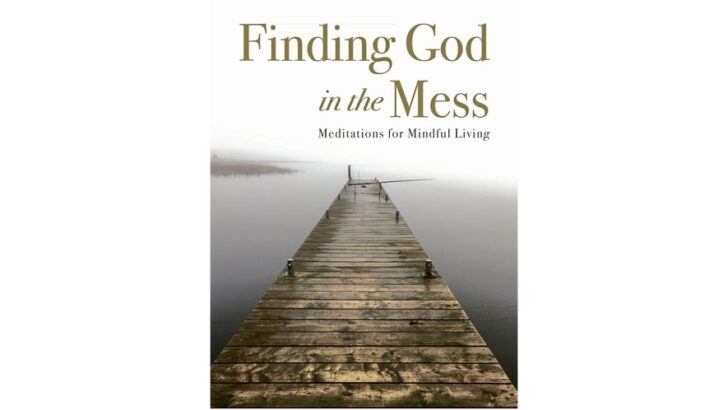Finding God in the Mess: Meditations for Mindful Living, by Brendan McManus SJ and Jim Deeds (Messenger Publications, €11.95 / £10.95)
This is a new edition of a book that proved a great success when it was a first issued in 2018, indeed it was awarded two media awards. Though it then had many readers, many today will not have heard of it, and others who read it then might like to have a new copy.
This post-Easter period is usually a period of change marking the return of a new life to the world, symbolised for some by the sudden efflorescence of flowers and trees and the return of the birds to our gardens, almost as if the universe itself was keyed into the whole essence of resurrection, not in a symbolic way, but as a reality.
So who are the authors and what have they expounded in their book? We are told a little about them. Brendan McManus SJ works as a spiritual director and retreat giver in Belfast. Jim Deeds is a poet and author and works in pastoral ministry in the Diocese of Down and Connor. But their book reveals a great deal more.
The book is organised in what may seem a very traditional way, sectioned in the joyful, luminous, sorrowful, and glorious mysteries. Under each rubric there is a concept for each day, and two to spare so speak. In between the matter is thrown back in the readers themselves by way of “Reflective Questions”.
Indeed the involvement of the reader is the essential core of the book, there is nothing prescriptive in what they say, their advice is merely suggestive of what the reader might do, think, or pray.
The book is composed so that it can be used creatively by both individuals and organisations for their own private time, and by groups of one kind and another, who can share their own thoughts about what the authors’ say, and what the readers think.
This sense of an organisational mode is perhaps just what people need. It is all too easy to avoid thinking about anything these days. There seem to be an endless horde of people proposing, one way or another to do our thinking for us. That certainly makes things easy, but it is not in the end really much help. Thinking for oneself about all aspects of life and spirit is what should activate us. And by us that could mean everyone, for it would be an interesting experience for the disbelieving and the doubtful to see how what is suggested might work out for them. Such interpretations, by those who claim not to believe anything and those who claim that they do, would be interesting to see.
All those readers who felt they benefited from the first edition some years ago cannot have been wrong. But the new readers of today will have to find out for themselves, to find too new ways of approaching the spiritual and the mystical. So, if you want to do a challenging springtime reread, nothing better than Finding God in the Mess can be recommended.
This note is written at a much cluttered desk on which are piled up in a messy disorder the varied aspects of this author’s life. There are those who claim a tidy desk is a sign of a productive, ordered life. But scientists have found that those with a messy desk are often more creative, certainly more interactive. They live in their own mess and thrive in it. This book shows how this is possible for everyone to do likewise.


 Peter Costello
Peter Costello
